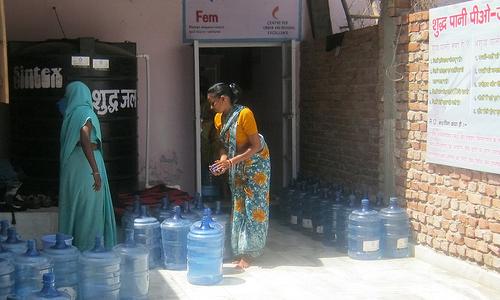
Travel to any part of the country today and the one consistent factor is the packaged water sold at bus stops, railway stations, road side stores and even airports. No seminar, event or compendium is complete without these packaged bottles dotting the table of the dignitaries and speakers.
Packaged drinking water is water from any source, which has been treated and disinfected, a process that could involve filtration, UV or ozone treatment or reverse osmosis (RO) and then packaged in bottles or pouches, either plastic or glass, for our consumption. For a product to be considered as “bottled water”, it cannot contain sweeteners or chemical additives (other than flavors, extracts or essences) and must be calorie-free and sugar-free. India’s packaged bottle water industry has been valued at Rs.60 billion in 2013, and this market is expected to reach Rs.160 billion in 2018. There are around 150 domestic Indian Bottled Water Brands in the market today.
When did packaged water become such an essential item, a commodity without which we find difficult to move around? What has spurred this industry to grow at this exponential rate?
A rise in health awareness, poor quality of tap water available, increase in tourism and the easy availability of bottled water have all contributed to the increase in the per capita consumption of bottled water in India today. The packaged water industry in the country is regulated and all bottling units have to obtain a license before they can operate. However illegal manufacturing units do thrive across the country, putting at great risk the health of the people. People can file a complaint to the regulatory authority against unauthorised water drinking plants.
For more information on the packaged water, please read our FAQ on Packaged Drinking Water & Mineral Water.
/topics/packaged-water





